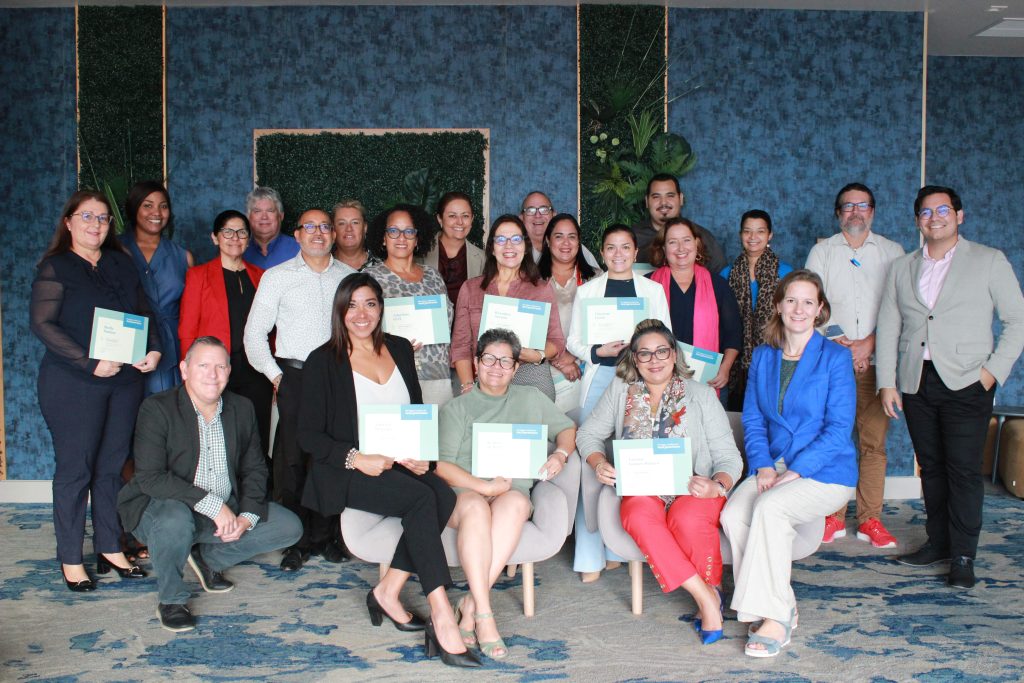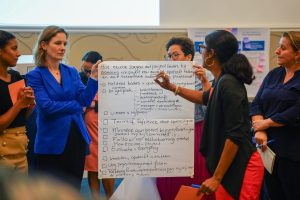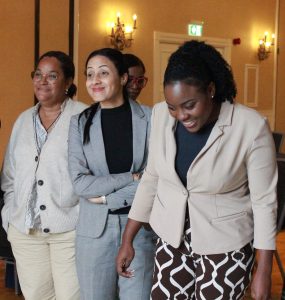The Hague Academy’s course on Project Management in the Caribbean was done in a joint initiative with the governments of the Netherlands, Aruba, and Curaçao.
Between 20 and 30 officials from ministries involved in the implementation of the Landspakketten reform programme, financed by the Dutch Government, participated in the training on enacting reform through project management.

Shumiré N. Johannes-Ignacio, the Director of Permits Counter Curaçao at the Ministry of Governance, Planning, and Services, shares her opinion about the course:
“The expertise of trainers Pablo and Suzanne, combined with the hands-on approach and interactive sessions, provided me with valuable tools and frameworks to effectively lead projects. It has further developed my decision-making and leadership skills”.
Tools for managing reforms
The training programme was designed to meet a wide range of needs, from basic project management techniques to stakeholder management and leadership.
After an introduction on Project-Based Creation (PMC), an agile way of working and organising within a consciously chosen structure and boundaries, the training covered various tools for managing change. By applying the ADKAR model (Awareness, Desire, Knowledge, Ability, and Reinforcement), participants analysed the current change.
Stakeholder Management
Throughout the sessions, there was a strong emphasis on stakeholder management, which is one of the most important components of project success. This emphasis on communication highlights the significance of soft skills in project management, where technical proficiency alone may not ensure success. Effective engagement with diverse stakeholders is critical to ensuring that all parties involved are on the same page and committed to achieving the project’s objectives.
“Being familiar with the technical side of project management, I am really grateful for the focus on the human side of managing projects. Practising with stakeholder analysis and stakeholder management and also paying attention to the different kinds of communication styles, goals, and means in order to reach out to them successfully”.
Takeaways
Beyond the technical and strategic aspects, the programme placed a strong emphasis on reflection and personal development. By self-assessment exercises, participants identify their own leadership skills and set personal learning goals. They also reviewed the human and organisational dynamics that influence project outcomes.
Overall, they found both the technical and project management aspects crucial and timely. As Luenne Gomez-Pieters, Managing Director of the Aruba Tax Department, puts it:
“In a world of growing complexity, where government organisations face a variety of challenges, a strong project management approach is more critical than ever… Project management excellence depends on effective team coordination, setting clear, achievable goals, and proactively managing risks”.
Next Steps: Future Learnings
Looking ahead, there is a strong desire for continued education and growth. Several participants suggested that future training sessions include more colleagues to ensure that the knowledge gained spreads throughout their organisations. There is interest in organising alumni meetings or refresher courses to share experiences and reinforce new skills among participants from different islands. 
“From the participants, we received feedback that it would be useful if the learnings from this course were broader known to colleagues, so they learn to speak the same language and use the same methods”, clarifies trainer Suzanne.
With continued investment in such capacity-strengthening initiatives, the participating officials stand to strengthen their ability and know-how on long-term public service delivery.
Join Us!
The Hague Academy’s course on Project Management in the Caribbean was done in a joint initiative with the governments of the Netherlands, Aruba, and Curacao. You can visit our Open Courses to learn more about our various, year-round trainings dedicated to practitioners and local officials.
